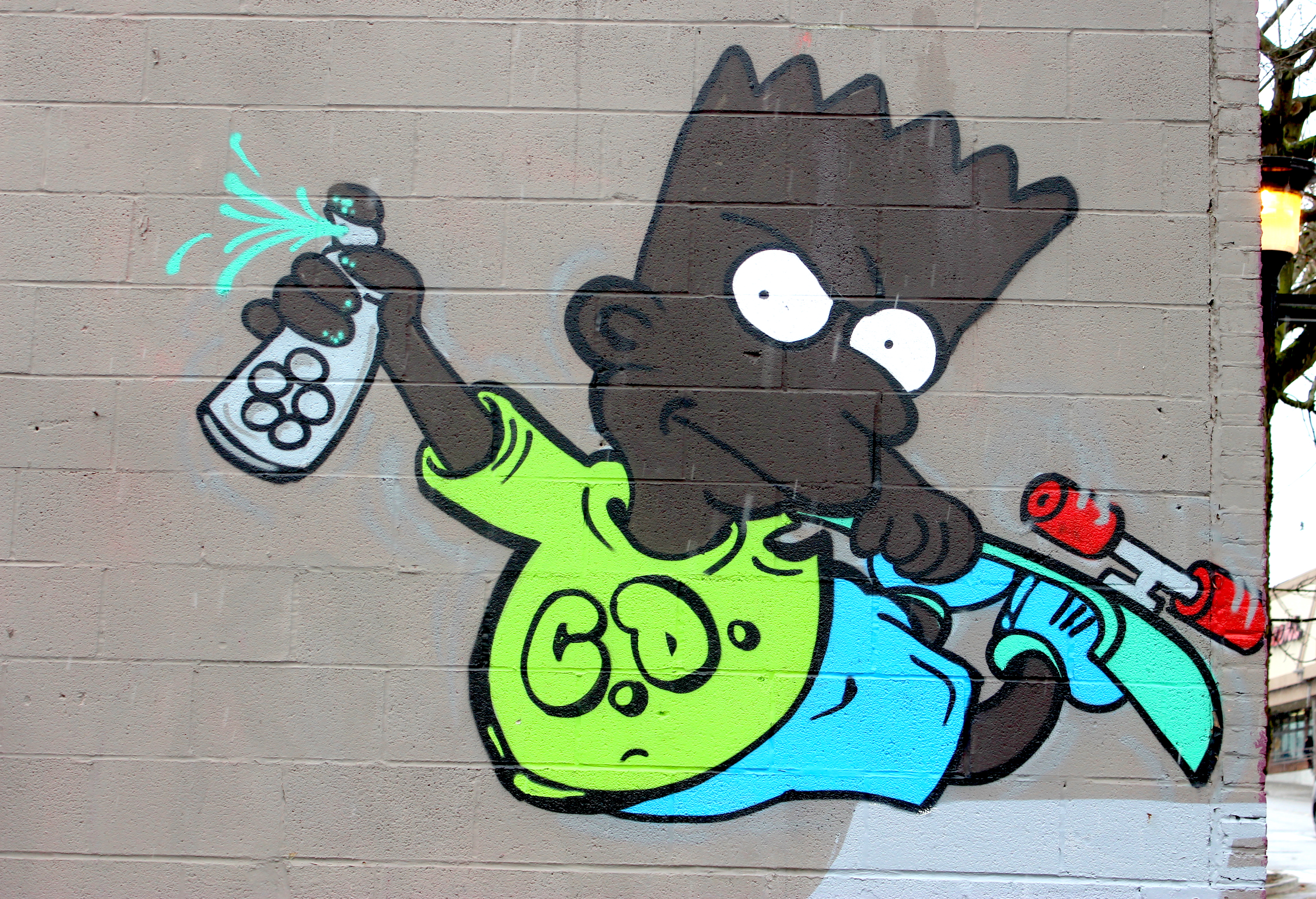When Ian Kurtis Crist becomes fully immersed in his performances, his shoulders hunch all the way up to his ears. Between these two bony wings, his head begins to bobble back and forth in what looks like an uncontrollable fit—somewhere between a head-bang and a seizure. It’s a kinetic, eerie sight that’s hard to look away from, especially given how motionless his eyes remain, staring out from behind his perpetually darkened lids. Whether in his prolific local DIY punk trio Health Problems or his solo noise project Bat, his stage presence is so tightly wound, it’s hard not to feel that primal fight-or-flight instinct creep up. Crist’s newest album, This Is America, the sophomore release from his solo punk project Bosnia (out April 17 on Casino Trash Records), is purposefully designed to be his most direct challenge to audiences yet—a horrific, cultural caricature that’s easily his most compelling artistic achievement thus far.
“When I was conceiving the idea for this thing, I was working in kitchens and bars 60 hours a week, and it’s very common to hear a lot of misogyny and male dominant behavior,” Crist says. “Scraping the slop off of shitty fryers for shitty food that shitty people were eating and personally proliferating that garbage—and then hearing people I worked with coming into the kitchen and talking about ‘what hole they’re gonna fuck next’—that’s some real America. This misogyny, this homophobia, this transphobia, this racism—this really, really exists at every restaurant you go to eat at, and probably every DIY show you go to. I feel like that ignorance is totally still in people and carried out in these supposedly ‘safe’ spaces in Seattle, even though it’s quieted. No scene is really safe. Rape and misogyny still go on. That’s what I think is really disheartening and sad and very real, and I want to bring attention to that with Bosnia, even though it’s an incredibly uncomfortable thing to do.”
What makes This Is America transcend tired political punk tradition is the approach Crist takes to addressing these issues. Rather than “obviously yelling out about these things that on paper or Facebook everybody would agree with,” as Crist puts it, he chose to write a record in which he embodies the very evil he hates, which makes for an incredibly difficult listen. Every single song on the album is written from the perspective of a repulsive, violently macho straight white male—a dark character that lurches into the spotlight in the album’s searing first track and “thesis statement,” “I, America,” delivered in Crist’s trademark intense guttural sneer:
“I can do whatever I want / I am America / I am a man with the hard cock of privilege / Fuck any crack that pass me by / It’s the land of the free / I am America / Home of the brave / Not afraid to dominate / Not afraid to discriminate / I am the rapist of the modern world / I am judgment / I am God.”
To amplify the effect, Crist produced the record to sound “ultracompressed and nauseatingly in-your-face the whole time— as nauseatingly as these social issues are in real life.” It’s by far the meanest, rawest record I’ve heard this year, full of pulverizing, white-hot riffs and sinister, blown-out cymbals that relentlessly beat the listener over the head.
Initially, Crist intended to present the album devoid of any context, under the impression it might be more powerful that way. “Instead of people standing around at a show and hearing me sing about why these things are bad and go ‘Oh yeah, I get it, I agree’ and then go on apathetically drinking beer with their friends or whatever—which is essentially the same as just hitting ‘Like’ on a political Facebook post and doing nothing—I wanted someone to walk into this scenario with me performing this live and go ‘What the fuck is this? This is wrong.’ By feeling that, to me that means your morals are in the right place. If it scared anyone, I’d hope they’d ask me about it and we’d grab a cup of coffee and have a discussion, and if you embraced it, then that’s your own fault. But as I sat on it for a few months, I realized presenting something really shocking without substance isn’t something I want to do—I want to make clear that I’m not someone who gets off on unsubstantial shock value. I don’t make music if it doesn’t have meaning behind it.”
The episode that truly
drove this home came when Crist played an early version of the recordings for a close female friend. While praising his slurred, drunken-sounding delivery of the line “Come on, baby” on the anti-rape track of that name, she suddenly froze when the following line, “Let me slip it in,” came through the speakers.
“She stopped dead in her tracks and told me ‘That’s really, really fucked-up,’ ” Crist tells me wide-eyed. “She elaborated with personal experiences and experiences of her friends, and just asked about the proliferation of messages like this.” After giving her his “disclaimer,” she understood, but was still left uneasy—which in the end, Crist says, is his ultimate goal with the record. But given how deeply his friend had been hurt by something that Crist had “created with a lot of passion and was very serious about,” he decided to accompany the record with a detailed manifesto, outlining his intent and goals and including a track-by-track explanation of his message.
“I hope this record challenges men, religious fanatics, and the blanketed, unaware, careless American,” Crist wrote in the missive. This Is America is essentially a mirror, one that the straight white male can choose to pick up and be repulsed by, or, tragically, identify with and celebrate. It’s a risky gambit that Crist fully acknowledges.
“The biggest fear I could have with releasing something like this is stupid men—if they were to hear it and be like ‘Yeah! Fuck yeah!’ and totally embrace this,” Crist says, briefly mentioning the “blatant ignorance, redneck behavior, and stark conservatism” of the people he knew in his native home of Alaska who might react as such. But even that reaction, he says, would be an interesting sociological play. It’s something Curtis learned from one of his favorite directors, Harmony Korine, whose films paint similarly stark, disgustingly overamplified scenes of American depravity and decadence that ultimately have roots in reality.
“I think [Korine’s film] Spring Breakers is genius because a lot of people were like ‘Hell yeah, naked women, Gucci Mane and guns and shit!’, when in reality he was totally calling that culture out. I thought that was a really interesting effect,” Crist says. “There’s no conclusion at the end of the film, really. You’re left with a very nasty portrait of real human life that really does exist, and it’s up to you to do with it what you will, but at least you’re made aware of it. I feel like if Bosnia was this project where I just went ‘Fuck all these men! Dun-nuh-nuh-nuh-nuh,’ people would just go ‘Oh, OK, I get it.’ That’s not effective anymore.” E
ksears@seattleweekly.com








